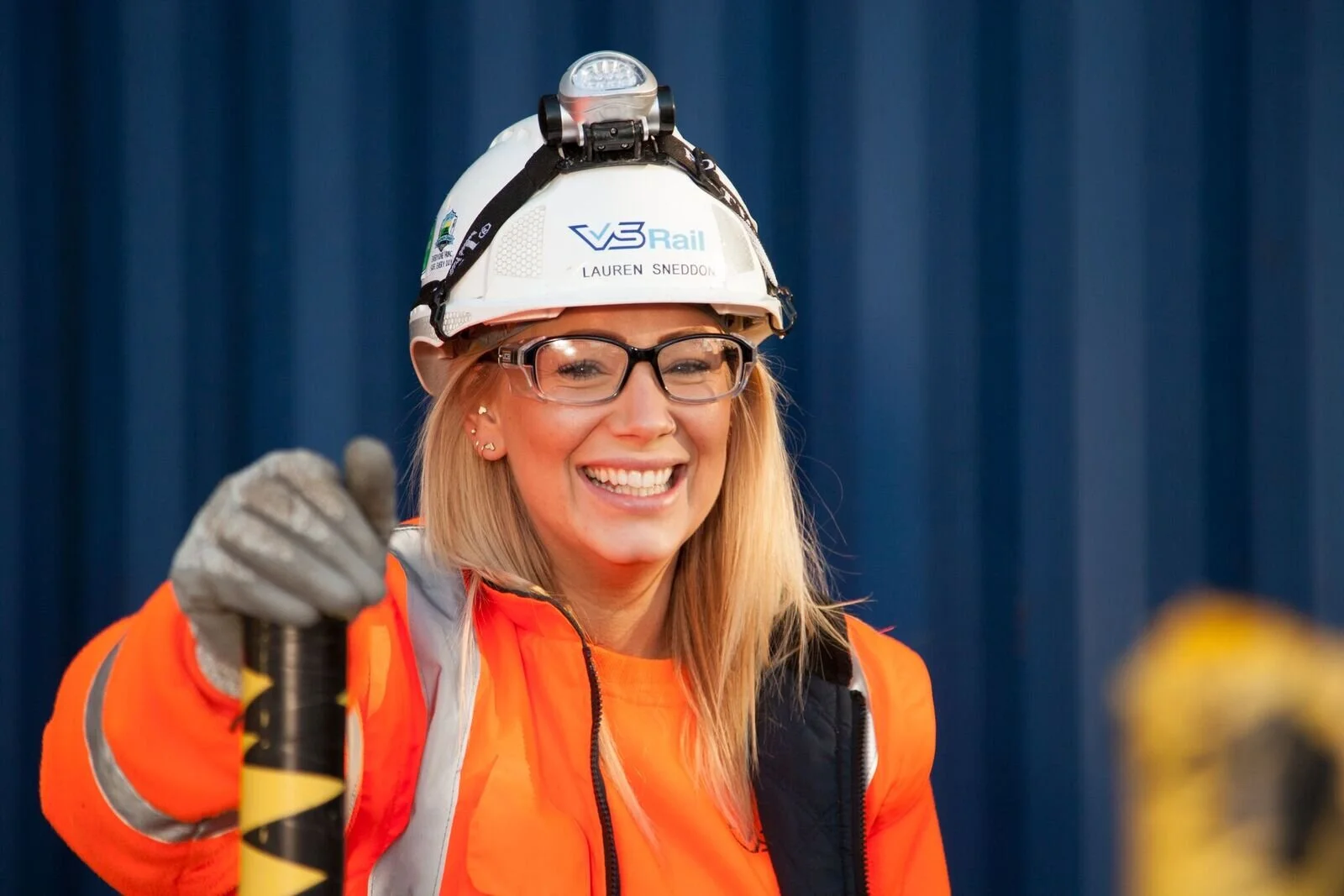In conversation with Charlotte Hammett
“If you are able to see every challenge as something that can be turned into an opportunity to grow, then I would recommend consulting to someone of any age.”
- Charlotte Hammett
Image: Charlotte Hammett
This month we are talking to women who work in consulting, we have a series of intriguing interviews with inspiring women currently working in the sector.
Charlotte is a technology consultant with Deloitte Digital, where she specialises in public sector clients and plays an active role in the Product Transition Lab, supporting training and workshops for those in Product Leadership roles; as well as sustainability, diversity and inclusion initiatives. She also independently volunteers her time with TimePeace, a community working to overcome the challenges associated with the social isolation, that many of those with asylum seeker or refugee status, face in London.
In her free time, Charlotte can be found enjoying the outdoors with friends, usually with a bike, tent or large body of water involved. She is also an avid traveller - although on rainy days, she is most likely to be found on the sofa, with a cup of Earl Grey - reading, or shopping for yet more outdoor gear.
What types of consulting projects have you worked on?
If you had told me a few years back that I would be introducing myself as a technology consultant, I wouldn’t have believed you. I think there is increasingly less distinction between the different kinds of consulting project. Often, the core focus is technology, but you need sound thinking around that to design the right thing, build it, get people to use it. Then you need to continue to evolve and achieve the outcomes that you set out to. I had completed projects across different parts of the consulting practice, including Strategy, Operations and Innovation before joining Deloitte Digital – where I was drawn to the combination of Strategy, Creative and Technology capabilities. Now, I sit in the Product & Delivery team and work with clients to help them realise how technology can help provide public services - it’s a great fit for me.
What does an average working day look like?
When you tell people that you’re a consultant, most people don’t know what that really means, and it can be pretty hard to explain what you do day-to-day. The roles you find yourself doing across projects can be varied, which is one of the main appeals.
Currently, my main role is a business analyst and team lead on a project with over 200 people, although I balance that with a number of additional internal initiatives that are of interest too. Our project team is responsible for looking after a technology platform, which is home to a number of ‘products’ and ‘services’ – which are just distinct parts of that system that users can either interact with online, or we need to do things in the background.
As a business analyst I work to understand what we need to build and how to communicate that clearly. This means a large proportion of my day is spent talking to people, having regular conversations with the client – whether that’s product owners, designers, user researchers or policy colleagues; and the really technical people too – such as developers, solutions architects and testers. We manage our work using software, where we write up what needs to be developed and can then track its progress through testing, all the way to when it is released into the live service. I spend some time each week tracking our metrics, making changes to our team structure or how we are working, to ensure we meet our delivery targets.
As a team lead, I also have regular catchups with everyone to talk through how they’re getting on and ensuring they’re fulfilled and supported properly, which is a nice pause with a cup of tea usually!
How did you get into consulting?
I joined the graduate scheme following a placement with Deloitte during my degree. Having said that, you don’t need a degree to have a really successful career in consulting – many of the best people I work with don’t. Many also bring their experience from industry, retrain from something totally different, or re-join the workforce following time out. There are lots of great schemes out there, including initiatives like Teach First, and Makers Academy for developers, which I recommend people look into.
It’s common now for people to make multiple changes throughout their career, so I really don’t think there is only one path into something.
What do you love about consulting?
The opportunities to work on significant and complex pieces of work, with a really bright team of people.
It’s a big company, which can seem daunting but once you find a group that clicks, people will invest in helping you to learn and grow. It’s very rarely about being the brightest or the best, it’s often about pulling everyone’s skills together to do something you could never do alone, by asking the right questions and knowing when to ask for help. The scale of things you work on and how much you pick up along the way is truly remarkable.
Mainly, I feel incredibly lucky to have made a number of friends along the way, we’ve shared some laughs and sometimes grumbles over a glass of wine – it really can be up and down - but that’s the way in any line of work.
How is the work-life balance?
This is a very important question as I think it’s something that a lot of people typically struggle with when they choose consulting, like many other professional services jobs, it can be demanding.
It really depends on the project, your direct manager, whether you are working at a client office and therefore away from home more, how much extra work you are taking on... Ultimately, you can make choices about those things and be sure to manage things in a way that works for you.
In any job, my advice would be to remain wary of thinking ‘busy’ means effective, but you do have to consider that we do some ambitious stuff for clients who are paying for results. You have to pull your weight in the team and accept that there will be times that are busier, so make the most of the quieter times when they come around. Personally, I work best in the morning, so typically start a bit earlier at 8.30am so I can wrap up by 5pm and take a full hour for lunch.
I do genuinely believe there has been a perceivable shift in openness around wellbeing, and even just a fundamental understanding that everyone in the team has their own set of circumstances and boundaries, that must be respected if we are to work at our best in a sustainable way. Right now, working from home and in an established team, I have found it much easier to find time for other things, given I don’t have to commute. I’ve also really loved meeting people’s kids, pets and partners over zoom, and seeing them in their home environments. I’m optimistic that the last few months have also shown how effective we can be remotely, so perhaps there is some added flexibility to be found as we see the future of work change too.
What is the biggest misconception about consulting?
Can I only choose one? There are quite a few! There is an exaggerated perception that a consultant is someone who is always running through an airport with a wheelie bag, constantly making PowerPoint slides. Don’t get me wrong, there is an element of that at times but usually it doesn’t involve glamorous locations, and especially given the current climate crisis, we should be minimising flying, which is a focus now.
Most of the big consulting firms now deliver technology solutions, rather than focusing solely on advisory. So, you are more involved in the clients’ operations than perhaps it used to be. I think that’s a good thing, it means we have a more integral understanding, and working relationship with client teams.
Would you recommend consulting to a young person, and why?
If you are able to see every challenge as something that can be turned into an opportunity to grow, then I would recommend consulting to someone of any age.
Although I considered myself to be fairly mature, I struggled when I was younger, at times. You’re working for a large company with a client-facing aspect and it can be intense, meeting a lot of new people and trying to pick up information under pressure. Sometimes, there are quite specific expectations and ways of getting things done but you will learn to navigate those. It also requires putting your own views aside sometimes and being adaptable, which can feel like a compromise and require some resilience too.
Having said all of that, if you stick with it and progress up the learning curve it can be incredibly rewarding. It’s an especially good option if you are not that clear yet on what to do, as you can chose paths that take you down the generalist route (lots of transferable skills, for example project management) or specialist (for example train as a software engineer).
I frequently have honest conversations with people who are considering whether it’s the right path for them and would be happy to be contacted with any questions.
For more resources click here to discover all about the Women In Consulting (WIC) organisation. It is a dynamic organisation of seasoned professional consultants in a broad range of more than 30 specialties, ranging from engineering to financial advising and marketing to web design.
WIC was established in 1998 as a collaborative community to help foster successful consulting practices and to build stronger businesses. They provide education and enable the sharing of best practices, resources and expertise.




